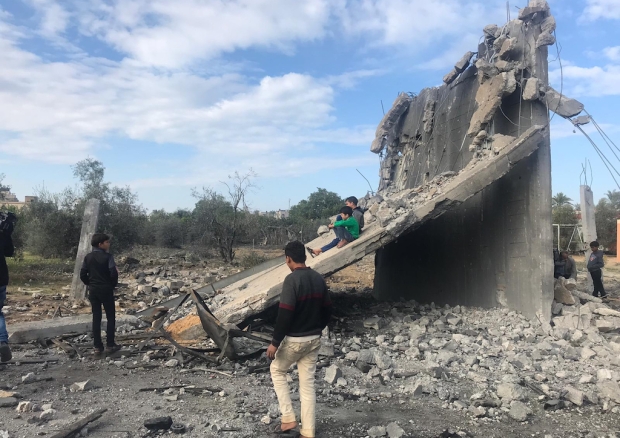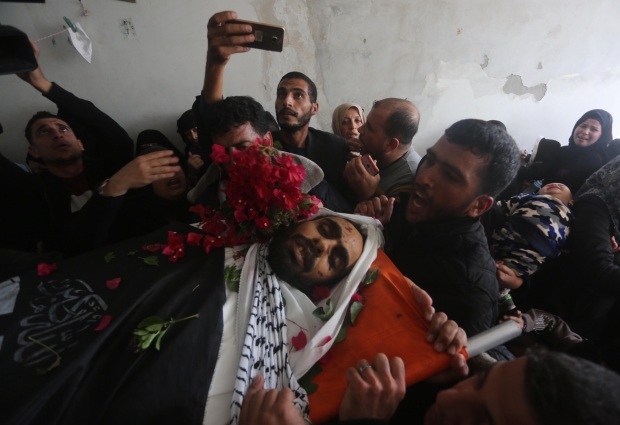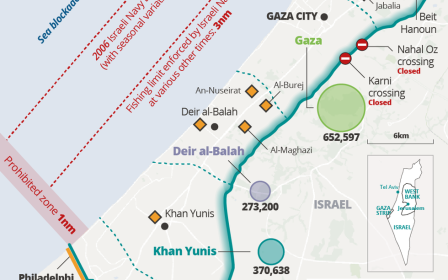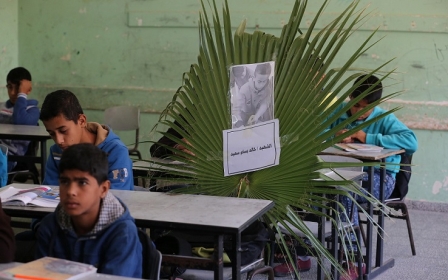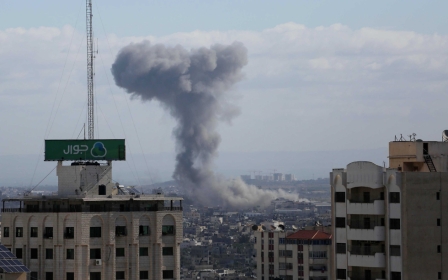Seven Palestinians, one Israeli officer, killed during botched Gaza raid
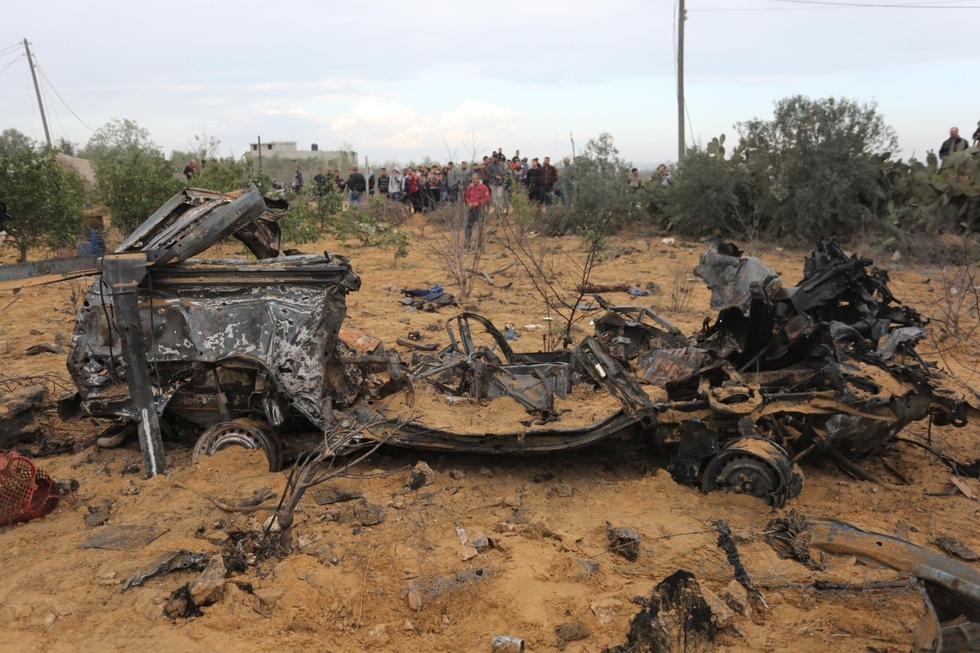
Seven Palestinians, including a commander in Hamas's military wing, and one Israeli officer were killed during an operation in the Gaza Strip, the Israeli military reported on Monday.
Israeli Prime Minister Benjamin Netanyahu cut short a visit to Paris, a spokesman said, and was returning to Israel after news broke of the apparently bungled intelligence gathering operation.
Israeli Defence Minister Avigdor Lieberman was holding consultations at military headquarters, his office said in a statement cited by Reuters.
"During operational activity in the Gaza Strip, an exchange of fire evolved. More details to follow," an Israeli army statement said, later adding that an Israeli soldier had also been killed.
Palestinian security sources said the clash occurred east of Khan Younis, where at least seven people were killed and seven wounded, according to the Gaza Health Ministry. Local reports in Gaza said Israeli planes fired missiles near where the altercation took place.
In a statement, Hamas’s armed wing, the Izz al-Din al-Qassam Brigades, said Israeli undercover forces in a civilian vehicle infiltrated three kilometres into Gaza and fatally shot one of its commanders.
It said fighters discovered the car and chased it down, prompting Israeli air strikes that killed “a number of people”.
During the pursuit, Israeli aircraft fired more than 40 missiles in the area, witnesses told Reuters.
A Hamas spokesman denounced a "cowardly Israeli attack".
After the clash erupted, sirens were reported in southern Israel, indicating rocket fire from the Gaza Strip, AFP said. The Iron Dome missile defence system intercepted at least two projectiles during the subsequent exchange of fire.
Israeli military spokesman Jonathan Conricus initially said all Israeli soldiers involved had returned to Israel. "IDF (Israeli Defence Forces) operated in the Gaza Strip, exchange of gunfire ensued," he wrote on Twitter, referring to the Israeli army. "All IDF soldiers back in Israel. Several alarms have sounded in southern Israel."
However, the army later said that a lieutenant colonel, who they did not identify, had been killed.
Gaza's Health Ministry reported the slain Palestinians were: Hamas commander Nour al-Din Muhammad Salama Baraka, 37; Naji Abu Khater, 21; Mohammed Majid Moussa al-Qara, 23; Alaa al-Din Mohammed Qwaider, 22; Mustafa Hassan Mohammed Abu Odeh, 21; Mahmoud Attallah Musabeh 25, and Alaa Fawzi Mohammed Fseifes, 19.
The clash comes after months of protests along the Gaza-Israel separation fence, during which more than 200 Palestinians have been killed and 20,000 wounded. The most recent casualty raised the Israeli death toll since the beginning of the Great March of Return to two.
Recent weeks have seen Israeli decisions to allow Qatar to provide the Gaza Strip with millions of dollars in aid for salaries as well as fuel to help ease an electricity crisis.
In late October, Israel and Qatar reached an agreement for Doha to send funds to pay Gaza's civil servants, who hadn't been paid since September 2013.
Netanyahu had earlier defended his decision to allow Qatar to transfer the cash to Gaza despite criticism from within his own government, saying he wanted to avoid a war if it wasn't necessary.
Israel and Palestinian fighters in Gaza have fought three wars since 2008, and recent months of unrest have raised fears of a fourth.
New MEE newsletter: Jerusalem Dispatch
Sign up to get the latest insights and analysis on Israel-Palestine, alongside Turkey Unpacked and other MEE newsletters
Middle East Eye delivers independent and unrivalled coverage and analysis of the Middle East, North Africa and beyond. To learn more about republishing this content and the associated fees, please fill out this form. More about MEE can be found here.


